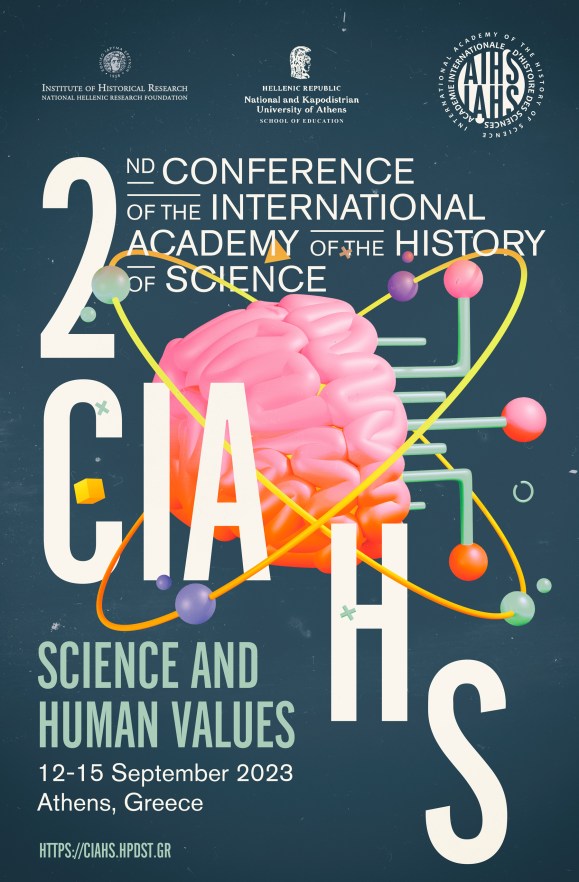2nd Conference of the International Academy of the History of Science
Athens, Greece, 12-15 September 2023
Scientific practices and human values – A historical approach.

(texte en français en bas de page)
George Sarton, one of the founders of the International Academy, proclaimed that the history of science was the basis of a “new humanism” because science generates its own values. Auschwitz and Hiroshima proved him wrong.
The ethical and social responsibility of the scientist in his or her research practice and applications is a burning issue today. But this problem is an old one. It is linked to all religions and all the great philosophies. In history, there have been many cases since the beginning: experimentation on humans, the contribution to war inventions (Nobel), the contribution of scientists to the atomic bomb and their revolt, questions of race and gender, the control of life in its origins and its end, submission to the military-industrial complex, artificial intelligence etc… A historical, transdisciplinary and transcultural approach sheds new light by situating the fundamental questions in the long term.
The Second Athenian Days of the History of Science are co-organised by the National Hellenic Research Foundation and the International Academy of the History of Science with the support of the University of Athens. The Foundation is completing an extensive programme on “Science and Religion” entitled “Science and Orthodoxy around the World”.
The International Academy brings together 350 specialists from all over the world from all religious, philosophical and political backgrounds. The congress is not restricted to members of the Academy who will hold their general assembly there, but is open to all scholars, including doctoral students.
The languages of the congress are the two working languages of the Academy: French and English.
Pratiques scientifiques et valeurs humaines – Une approche historique.
George Sarton, un des fondateurs de l'Académie Internationale, proclamait que l’histoire des sciences était la base d’un “new humanism” parce que la science génère ses propres valeurs. Auschwitz et Hiroshima lui ont infligé un terrible démenti.
La responsabilité éthique et sociale du savant dans sa pratique de recherche et dans ses applications est aujourd’hui une question brûlante. Mais cette problématique est ancienne. Elle est reliée à toutes les religions et toutes les grandes philosophies. Dans l’histoire, les cas sont nombreux depuis les origines: l’expérimentation sur l’homme, la contribution aux inventions de guerre (Nobel), la contribution des savants à la bombe atomique et leur révolte, les questions de race et de genre, la maîtrise de la vie dans ses origines et sa fin, la soumission au complexe militaro-industriel, l’intelligence artificielle, etc… Une approche historique, transdisciplinaire et transculturelle jette un éclairage nouveau en situant les questions fondamentales dans la longue durée.
Les deuxièmes Journées athéniennes d'histoire des sciences sont co-organisées par la Fondation Nationale de la Recherche Scientifique de Grèce et l’Académie Internationale d’Histoire des Sciences, avec le soutien de l’Université d’Athènes. La Fondation termine un vaste programme sur “Science et Religion” intitulé “Science and Orthodoxy around the World”.
L’Académie Internationale rassemble 350 spécialistes du monde entier de tous les horizons religieux, philosophiques et politiques. Le congrès n’est pas réservé aux membres de l’Académie qui y tiendront leur assemblée générale, mais il est ouvert à tous les chercheurs, y compris aux étudiants de doctorat.
Les langues du congrès sont les deux langues de travail de l’Académie: le français et l’anglais.
Previous conference / Conférence précédente: 1st CIAHS (2019)
Header photo from the XIIe Congrès International d'Histoire des Sciences, Paris, 1968
You must be logged in to post a comment.